The war over the children of South Africa
All over the world a war is being waged between the state and parents over the hearts and minds of their children. Over the last 100 years, the state gained almost complete control over education as public schools became increasingly prevalent.
However, since the 1950’s it has become increasingly clear that public schools are a disaster. In 1983 a report for pres. Ronald Reagan stated: "The educational foundations of our society are presently being eroded by a rising tide of mediocrity that threatens our very future as a Nation and a people" and "If an unfriendly foreign power had attempted to impose on America the mediocre educational performance that exists today, we might well have viewed it as an act of war".
In response to the decay of public schools, parents are taking their children out of schools to educate them at home. Home education is now the fastest growing type of education internationally.
Impact of home education in South Africa
Since the late 90’s parents in South Africa also take the responsibility to educate their children at home at an exponential growing pace. They are transferring their own values to their children and preparing them to be independent and successful citizens in the 21st century. It is a concern to the state that this new generation might not vote for the incumbent government.
Although the current number of home learners is still less than 1% of the school-aged population, the numbers are becoming significant. About 100 000 home learners equates 250 schools, 3800 teachers and a loss of more than R1B per year to public schools. This is equivalent to half the school population of the Northern Cape. This is a concern to teachers’ unions and the state's textbook suppliers.
The impact of the exodus from schools is exacerbated by the loss of the parents of these children. These parents were generally actively involved in the school and paid school fees. To a school, the loss of the skills and funds of these parents can sometimes have a devastating effect.
Home education erodes the tax base required to pay for the growing burden of social grants and corruption. In families who choose home education, the mother often leaves the workforce to focus on her children. This means a loss of income tax on the salary of the mother and also income tax of the teachers that she would subsidise through school fees. Whilst the state loses tax income, the mother contributes something to the family with a value that far exceeds the loss of her income.
The impact of home education goes further than education. Once families have taken responsibility for education, it fosters a culture of independence and these families are increasingly adopting a lifestyle free from state interference in other aspects of their life such a health, nutrition, security and power.
Attempts to gain control over home education
Because the state views home education as a threat, it attempts to gain control over this phenomenon. Since South African law clearly allows home education, and it has become a well-established and accepted form of education, it was difficult for the state to change legislation and merely ban it. It had to gain control by more devious and less visible means.
The first attempt to gain control in the late 1990's was through a draconian national policy on registration for home education. Because of the multitude of unlawful requirements in this policy, the majority of parents did not register for home education. The effect of the policy was reduced even more by the constitutional court judgement in the Harris case, which ruled that citizens are not bound to comply with policies, but only with laws and regulations.
The second attempt was through the introduction of a national curriculum framework in 2002. A national curriculum is designed to transfer the values of the state to the next generation, in order to ensure that the next generation continues to vote the incumbent government into power. Although the national curriculum was not primarily aimed at home education, it was hoped that it would also contribute towards getting more control.
The prescriptive nature of the national curriculum was expanded in 2010 with the introduction of CAPS, which added assessment criteria to the curriculum. The introduction of CAPS did not have much direct influence on home-schooling parents, but it had a marked influence on curriculum suppliers, who tried to make their products attractive to a larger audience by ensuring that these are CAPS compliant.
In 2012 the BCVO organization attempted to get a high court ruling stating that CAPS is not binding on private and home education. The application failed on technical grounds, mainly due to negligence on the side of the pro bono legal team. Although no judgement was made on the matter, the judge did comment that CAPS is not binding on private and home education.
The third attempt was through the policy on the administration of the national senior certificate (NSC). This policy requires learners to pass grade 10 and 11 in order to be admitted to grade 12, therefore forcing home learners to follow CAPS for at least 3 years in order to get a NSC. The time-consuming and expensive nature of CAPS resulted in a growth in alternative matric qualifications such as Cambridge. The growth in alternatives increased even more when more candidates obtained the GED qualification.
The latest attempt
The latest attempt to gain control is by transforming home education to an alternative channel to deliver state education, through the use of the private sector.
The state is a large bureaucracy, inefficient and slow to respond. This makes it difficult to gain control over a dynamic, outspoken and interconnected movement. Since home-schooled parents are not subsidised by the state, there is also no financial incentive for parents to register with the state and give the state control over their education.
In contrast to the slow-moving state machine, the private sector is efficient and offers something that home-schooling parents need, namely curriculum material. Some private sector players are more than willing to align with the state, since they find it difficult to find other markets that grow as fast as home education in the current shrinking economy. Shareholders will certainly appreciate some help from the state to gain a competitive advantage. The state can therefore overcome its weaknesses by co-opting such players in the private sector.
From media interviews it emerged that the state seems to co-operate with curriculum suppliers. The state apparently plans to create a regulatory environment that favours certain curriculum suppliers. In exchange for this favour, curriculum suppliers assist the state to gain control over home-schooling families.
What parents should do
Homeschooling parents and the state are now in a battle about who decides what and how children should learn. Parents want to choose between a wide variety of educational approaches and curriculums to serve the interests of their children. The state wants to prescribe CAPS in order to serve the interests of the state.
Curriculum suppliers apparently are split into two camps. Some suppliers align themselves with the state, develop products based on CAPS and make registration a pre-condition for buying their product. Others develop products that transfer values which are in line with those of the parents and prepare children to be independent and successful citizens in the 21st century.
In this environment, parents must become increasingly careful when making curriculum choices. Be aware of the wide variety of educational approaches and curriculums which are available. If you decide to make use of CAPS, ensure that you do not buy a product that makes it difficult to choose a different curriculum six months or a year later. It is common practice amongst home-schooling families to change curriculum as they gain confidence and develop a better understanding of the needs of their family. Sacrificing the freedom to choose a curriculum is something that is certainly not in the best interests of your children.

Events
Legal & Research
Homeschooling and the law
Home schooling was recognized in 1996 in Section 51 of the SA Schools
+ ViewCentres
Homeschool ABC
Support
Curriculums
Learn, code and create with Ubbu
Introducing ubbu!An Adventure of Code and Play! Learn, Code ...
PASS Ged Academy
Pass GED® Academy is your online pathway to achieving your Grade 12 ...
Imperial International College
Imperial International College offers Online Education for High ...
Frequently Asked Questions
-
How does homeschooling work?
Homeschooling is different for every family as it depend on the parents educational goals for their children Education is the development of the...
-
Do I need to be a qualified teacher?
No. Research has found no correlation between the qualification of the parent and the academic performance of the child. Research shows that...
-
Can I be a working mom and homeschool?
Single parents who are committed to homeschool organize a schedule around their work commitments and sometimes involve family or tutors to assist...
-
Is home education often used as a smoke screen to hide child neglect?
State interference in home education is often justified as something that can identify situations where home education is used as a smoke screen to...
Has no content to show!



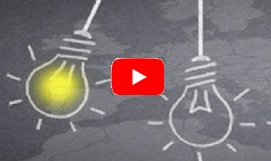




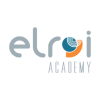
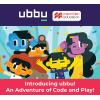
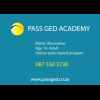
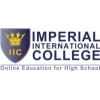














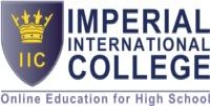


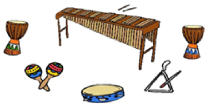


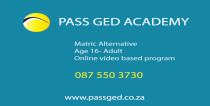
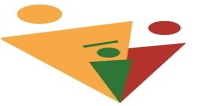

Comments